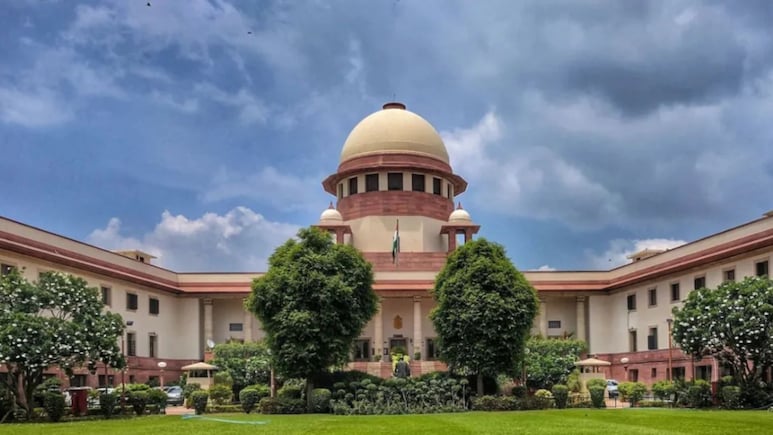
The Supreme Court has dismissed a special leave petition by the National Commission for Protection of Child Rights, or NCPCR, that challenged a 2022 Punjab and Haryana High Court verdict granting protection to a (then) 16-year-old Muslim girl and her 30-year-old husband.
The Supreme Court upheld the High Court order that said a girl who reaches puberty, or is over 15, is 'competent' enough to marry the person of her choice under Muslim personal law, irrespective of provisions of the Protection of Children from Sexual Offences, or POCSO, Act.
The High Court had then also granted the couple - Javed and Ashiana, and their child - protection of life and liberty from those who might threaten them, including family members.
On Tuesday the Supreme Court pulled up the NCPCR - which claimed violation of POCSO - for challenging an order that grants protection to the family. "You have no locus to challenge... if two minor children (i.e., Ashiana and her child) are protected by the High Court, how can you challenge such an order?" a bench of Justice BV Nagarathna and Justice R Mahadevan said.
"We fail to see how NCPCR can be aggrieved by protection granted to a minor..."
Earlier the High Court had not only granted protection to the couple but also directed that their marriage - which the NCPCR declared amounted to child marriage and child sexual abuse, as it violated existing laws on minimum marriageable age - was valid per Muslim personal laws.
Appearing for the child rights body, Additional Solicitor General Aishwarya Bhatti said the court may continue to provide protection, but keep the point of law open, i.e., can a 15-year-old girl have the legal and mental capacity to enter into a marriage on the basis of personal law.
The Supreme Court, though, did not agree. The court said there could be no discussion on 'a question of law' when dealing with an order granting protection of life to children. "If you want to argue that question.. then approach in the appropriate case," the court told the NCPCR.
"No question of law arises here... if the High Court, in exercise of its power to issue writes (under Article 226 of the Constitution) passed the order, how are you challenging it?" she asked the child rights body, "The girl is living with her husband! And has a child. What is your problem?"
The question of minimum age for marriage under Muslim personal law versus other, more secular, laws, such as the Prohibition of Child Marriage Act, is a contentious issue.
The latter is supposed to apply to all Indians, irrespective of religious affiliations, and sets the minimum age for marriage at 18. In the former, there is no set age and, traditionally, puberty is used as the threshold, i.e., a Muslim girl can be married, at that biological marker, usually at 15.
Meanwhile, the court also dismissed three other petitions in similar cases, and that earned the child rights body a reprimand. "We want to keep these romantic cases separate... these we have to exclude," Justice BV Nagarathana said, directing the NCPCR to "take up better causes".
The Supreme Court said romantic relationships involving a person on the verge of attaining majority should be viewed differently. "Are you saying it is criminal to love? POCSO Act takes care of criminal cases... but there are romantic cases also, where teenagers on the verge of majority run away. Don't read such cases the same as criminal cases. Have to differentiate."
Justice Nagarathna also warned against traumatising minors and forcing them to consider eloping with partners their families deem inappropriate. "... a girl elopes with a boy but her parents file POCSO case against him to hide elopement... this how honour killings are done!"
"We have to keep the reality of such cases in mind. There are now co-education schools, universities... everybody has freedom. They develop feelings for each other!"
Track Latest News Live on NDTV.com and get news updates from India and around the world

